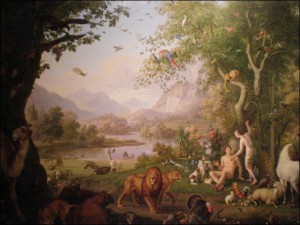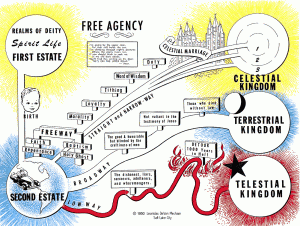Q: Can Mormons support their view of a pre-existence with God before being born on this earth…using scriptures only?
Ecclesiates 12:7 (italics added) Then shall the dust return to the earth as it was: and the spirit shall return unto God who gave it.
Jeremiah 1:5 (italics added) Before I formed thee in the belly I knew thee; and before thou camest out of the womb I sanctified thee, and I ordained thee a prophet unto the nations.
Jude 1:6 (italics added) And the angels which kept not their first estate, but left their own habitation, he hath reserved in everlasting chains under darkness unto the judgement of the great day.
Revelation 12:7-9 (italics added) And there was war in heaven: Michael and his angels fought againts the dragon; and the dragon fought and his angels, and prevailed not; neither was their place found any more in heaven. And the great dragon was cast out, that old serpent, called the Devil, and Satan, which deceiveth the whole world: he was cast out into the earth, and his angels were cast out with him.
Abraham 3:22-24 (italics added) Now the Lord had shown unto me, Abraham, the intelligences that were organized before the world was: and among all these there were many of the noble and great ones. And God saw these souls that they were good, and he stood in the midst of them, and he said: These I will make my rulers; for he stood among those that were spirits, and he saw that they were good; and he said unto me: Abraham, thou art one of them; thou wast chosen before thou wast born. And there stood one among them that was like unto God, and he said unto those who were with him: We will go down, for there is space there, and we will take of these materials, and we will make an earth whereon these may dwell;
It is clear from just the Bible that there was a “pre-existence” where we, as spirits, lived with God. The scripture that God has given us through Joseph Smith (I picked only one) confirms this doctrine. Thanks for your inquiry.


 There is, however, evidence from the Bible that the doctrine of “three kingdoms of glory” was taught.
There is, however, evidence from the Bible that the doctrine of “three kingdoms of glory” was taught.


